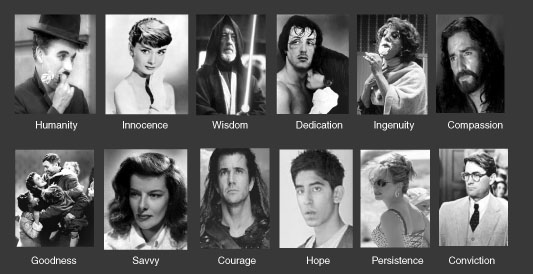Aristotle wrote, "The
beginning of wisdom is the definition of terms." Steven Covey added, “'The
main thing is to keep the main thing the main thing.” Zig Ziglar said, "If
you aim at nothing, you'll hit it every time." And when Alice asked the
Cheshire Cat which way she ought to go, he responded, “It depends a good deal
on where you want to get to.”
Philosophers, business
experts, motivational speakers, and even mischievous cats agree that if you
want to succeed at a task, you must first know what that task is before you
attempt to master it. Screenwriting is no different: a successful screenwriter
must first and foremost know what a screenplay is… and isn’t if he's to reach
his ultimate artistic and profession and goals.
1. A screenplay is MASS
COMMUNICATION, not your own PERSONAL PET PROJECT.
This sounds pretty obvious
but many a screenwriter has yet to realize that screenwriting is a profession –
a business involving the talents of many others and for the ultimate goal of
reaching millions of others - and making millions of dollars in the process.
It’s not an individual sport. In fact, it may well be the most collaborative
art form in the history of art forms.
Someone who wants to lock
himself in his room and write all day, doesn’t read the trades to know who’s
who and what’s what, doesn’t know what audiences have seen and/or want to see,
and doesn’t have practical and reachable deadlines and goals will find himself
better suited for the solitary society of the private poet, not the cluttered
community of the celluloid scribe.
Professional screenwriters
think more of the big picture of getting projects produced than in promoting
their own personal agendas.
2. A screenplay is a
WORKING DRAFT FOR A MOVIE, not a PRISTINE PIECE OF LITERATURE.
I know a writer who has
literally spent more than 10 years on a single screenplay, writing and
rewriting, organizing and re-organizing, polishing and re-polishing. And though
her work is no doubt getting incrementally better, it may be wiser for her to
“retire” this script and start on another.
Your goal in writing a script
is not to write the perfect piece of prose. Or win a Pulitzer. Or impress
anyone of your word usage, outlining ability, or formatting skills. Your goal
is to create a map for a feature film from which others will act, shoot,
design, rewrite, purchase, envision, and ultimately watch. You don’t get any
extra credit for flawless spelling or knowledge of the 3- or 4- of 5-act
structure.
Professional screenwriters
think more in practicalities than in perfection.
3. A screenplay is ONLY
ONE PART OF THE MOVIE PROCESS, not the FILM ITSELF.
Have you ever counted the
number of credited people on a movie? It may well be in the hundreds. And those
are only the ones who received credit. Scores of others wrote, acted, costumed,
directed, edited, and labored to get that idea off the set and into the
theaters with no recognition at all.
The writer is only one part
of the puzzle – albeit one of the most important parts (ask any writer). But
the writer is incomplete without the rest of the movie community. Your story
and characters and themes have to be handled and re-handled by a score of
capable and inspired artists who have as much skill in their field as you have in
your own. You can’t do it by yourself and shouldn't even try.
In fact, you’ll often find
that it is the actor’s touch that breathed life into a role you hadn’t
anticipated, the producers’ expertise that knew how to best finance and package
a project, the director’s expertise that caught and executed the film’s
greatest vision, and the editor’s hand that most contributed to the rhythm and
style of your screenplay.
Professional screenwriters
think synergy, not segmentation.
So if you want to be taken
seriously and become successful at the art and business of screenwriting, think
of your script in relational and not personal terms, treat it as a working
draft and not an untouchable work of art, and welcome collaboration and
inclusion wherever you can get it. It may well make the difference
between your script resonating with others and reaching the big screen or
remaining anonymous and undiscovered on your laptop, whose screen is much less
impressive.












